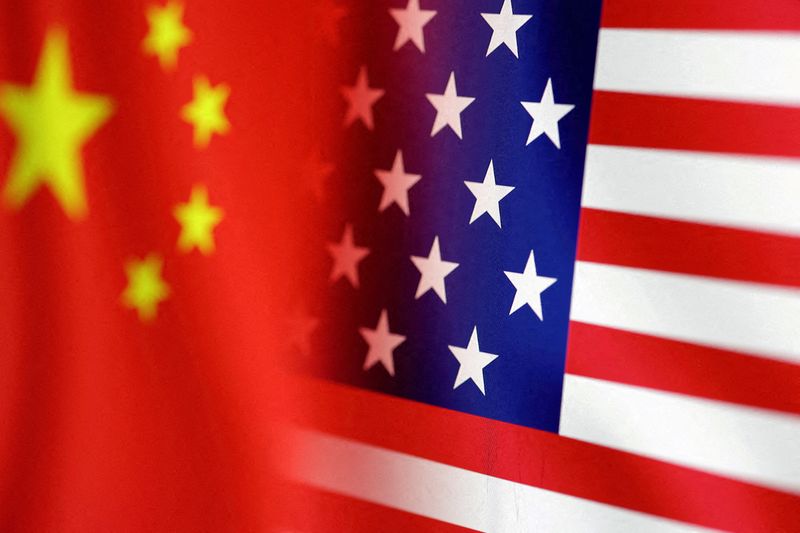Investing.com — In a Wednesday note to clients, Citi economists discussed the potential impact of a 60% tariff on Chinese goods entering the US market, a measure that has gained attention following the projection of Donald Trump’s victory in the presidential election.
The report outlines that such a tariff could lead to a significant reduction in Chinese exports to the US potentially decreasing China’s GDP growth by approximately 2.4 percentage points in an extreme scenario.
However, Citi believes that a universal 60% tariff is more likely a negotiating tactic rather than an imminent policy change.
“The proposal of a 60% universal tariff looks more likely to be a bargaining chip than a real risk, in our view,” economists led by Xiangrong Yu said in the note.
They anticipate a more realistic scenario where the effective tariff might increase by an additional 15%, which would have a lesser impact on China’s GDP, decreasing it by 0.5 to 1.5 percentage points depending on trade diversion effects.
The firm also speculates on China’s possible responses to a high tariff rate. Citi suggests that Chinese policymakers are unlikely to respond to pre-election rhetoric but may allow the Renminbi (RMB) to depreciate to between 7.7 and 8.0 if a 60% tariff is implemented.
Initially, the People’s Bank of China (PBoC) might defend the currency to manage market expectations and bilateral trade imbalances. Moreover, Citi expects China to continue its focus on technological advancements rather than resorting to counter-cyclical measures.
Regarding the ongoing National People’s Congress Standing Committee (NPCSC) meeting, Citi does not believe it will be heavily influenced by the US election outcome.
The meeting’s agenda is primarily focused on China’s fiscal support for 2024 and risk resolution strategies, which are driven by domestic concerns such as the growth target, property market downturn, deflation, and weak consumption.
While external uncertainties may prompt additional domestic support, immediate policy reactions to the US election are deemed unlikely by Citi.
“The CEWC (Central Economic Work Conference) in mid-December could be a better venue to assess the US election impact,” strategists said.
Citi anticipates that the NPCSC will concentrate on risk resolution rather than stimulating demand. The committee has discussed a new round of debt swaps and may provide further details later.
Although the Ministry of Finance (MoF) has recycled an unused local government bond (LGB) quota of RMB 400 billion, Citi does not expect a significant revision to the 3%-of-GDP headline deficit target.
Looking ahead, the Wall Street firm suggests that it is too early to dismiss the possibility of substantial stimulus for 2025. They maintain a base case for a fiscal deficit of around 3.8% of GDP in 2025, regardless of tariff scenarios.
However, should a 60% tariff be enacted, fiscal stimulus “could step up further and focus more on end-demand like consumption and property, in our view,” strategists said.
“The RMB10 trillion stimulus that top policy advisors such as Liu Shijin have advocated would become more plausible and likely in the face of more trade headwinds,” they added.

